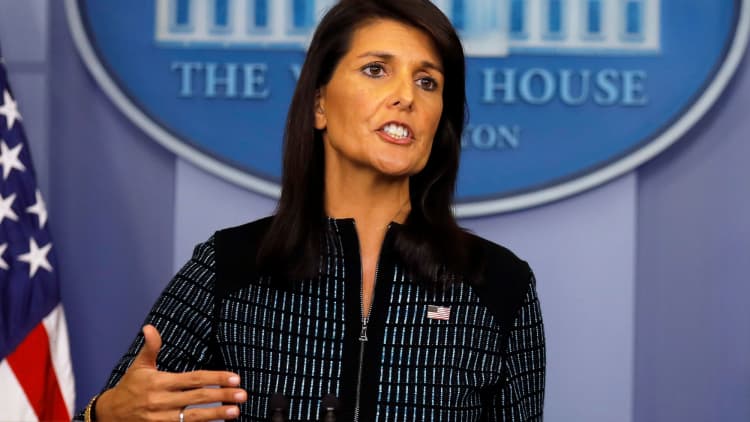
President Donald Trump will emphasize three goals next week at the United Nations General Assembly, according to national security advisor H.R. McMaster. The first two are the fairly standard "peace," and "prosperity," McMaster told reporters on Friday. But the third goal is unusual.
"Sovereignty and accountability are the essential foundations of peace and prosperity," McMaster said. "America respects the sovereignty of other nations, expects other nations to do the same, and urges all governments to be accountable to their citizens."
Coming from the United States, this goal of "sovereignty" is as notable for what it doesn't say as for what it says.
That's because sovereignty is a loaded term in international relations. In the postwar era, countries who wanted to be left alone to interpret human rights however they saw fit relied on an absolute definition of "sovereignty" to mean that other countries, and international bodies like NATO and the United Nations, had no right to interfere with how they treated their citizens.
Russia and China still hold fast to this absolute view of sovereignty. But in recent decades, the United States and Western Europe have shifted to a more fluid definition of sovereignty, one that permits intervention if a foreign power is committing genocide or war crimes against its own people.
Known as the responsibility to protect, this newer view of responsibility has underpinned U.S. intervention in Libya, and more recently, in Syria. Trump himself seemed to be acting on a responsibility to protect when he ordered a U.S. military strike in April in response to a chemical weapons attack by the government of President Bashar Assad.
But the view that countries have a say in how each other behaves is also antithetical to Trump's "America First" worldview. Since taking office, Trump has chafed under pressure to remain a part of multinational agreements, ranging from the Iran nuclear deal to NAFTA to the Paris climate accords.
For Trump, "sovereignty" means his right to do what he wants, free from international pressure. It also means a break with the Obama-era focus on multilateral agreements and international accords.
Trump is going to go his own way, McMaster is saying, and U.N. members would do well to remember that next week.
Trump will speak to the assembly on Tuesday. He will also have meetings with various world leaders throughout the week.
WATCH: Tough talk on North Korea



